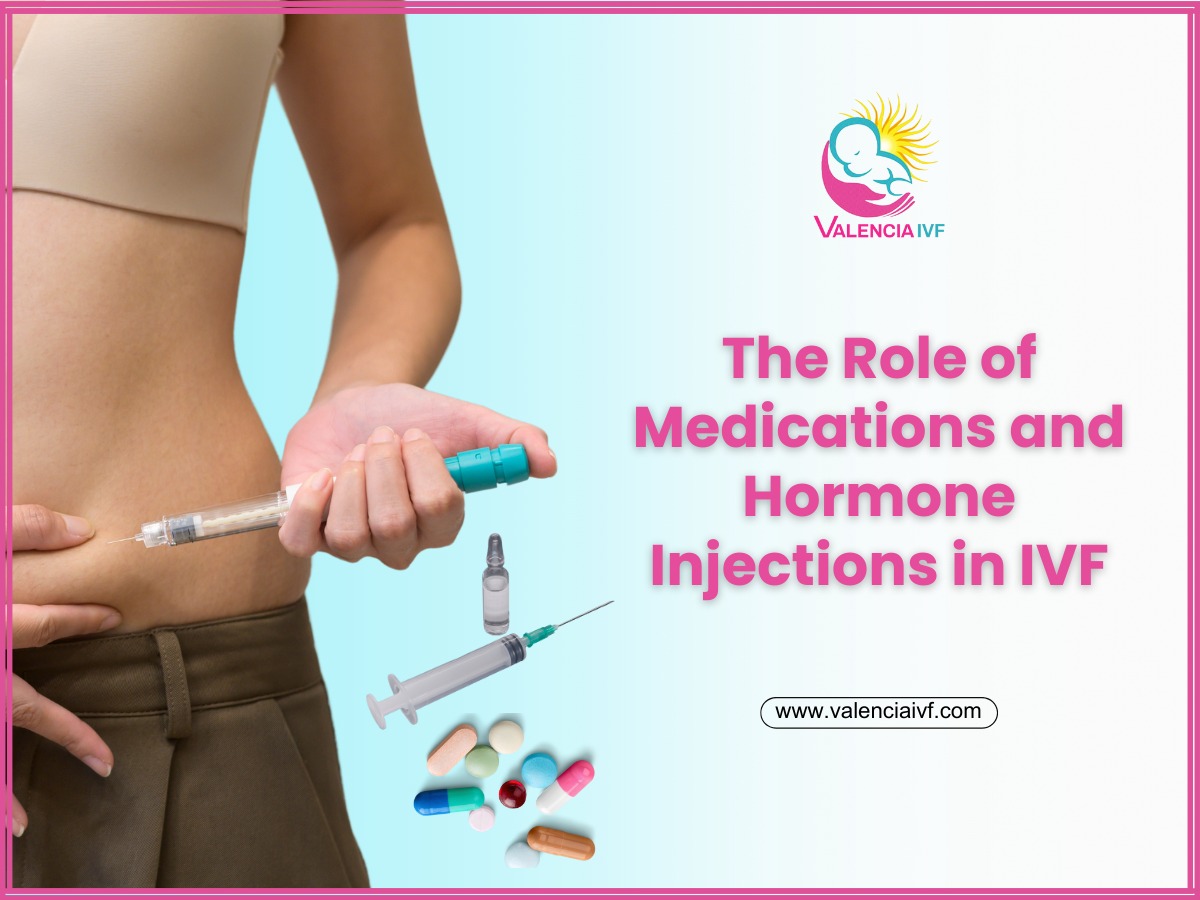
The Role of Medications and Hormone Injections in IVF
Couples who are not able to conceive a child naturally go for In-vitro Fertilization (IVF) a technique through which infertile women can become another and experience motherhood.
To increase and improve the success rate of the IVF technique certain hormonal injections and medication are given to the mother so that all the risks of failure can be prevented and pregnancy can take place without any complexity.
In vitro fertilization increases the chances of a couple conceiving a child, but it cannot guarantee the same, because various factors need to be fulfilled to make IVF successful.
One of those factors is hormonal imbalance and egg production. To understand the role of medication and hormonal injection in IVF, you need to understand its importance first.
Why Medications and Hormonal Injections are Important?
Fertility drugs or medication play a very important role in increasing the success rate of IVF, The best IVF doctors in Lucknow, never skip this part whenever they treat an IVF patient. Below are the reasons why:
- Regulate the Cycle: The medications help in controlling the timing and development of the eggs, which makes sure that eggs are available for retrieval and further fertilization.
- Prevents Premature ovulation: A particular time is fixed to retrieve the eggs, medication, and hormonal injections prevent the body from releasing eggs before they can be retrieved.
- Support Uterine lining: They prepare and maintain the uterine lining for implantation and early pregnancy support.
What are the medications Involved in IVF?
You must be clear by now as to why medications and fertility drugs are important in the IVF procedure. Now make yourself aware of the medications involved in the IVF procedure.
- Ovarian Stimulation Medication
This medication is used to increase the production of eggs so that good-quality eggs can be retrieved for fertilization. This medication is given before the actual IVF procedure starts. Below are the two types of medication usually given to the individual:
- Follicle-stimulating Hormone (FSH) and Luteinizing Hormone (LH:
These hormonal injections help the ovaries to produce multiple eggs in place of one. Usually, a single egg is developed each month, but due to egg retrieval procedures and other matters, these medications are given to obtain multiple eggs. This includes Gonal-F, Follistim, and Menopur.
- Human Chronics Gonadotropin (hCG): This hormone is used to trigger the final maturation of the eggs and prepare them for retrieval. This includes: Ovidrel and Pregnyl
- Gonadotropin-Releasing Hormone (GnRH): This includes two types:
- GnRH Agonists (example: Lupron): These are used to prevent premature ovulation by primarily stimulating and then downregulating the pituitary gland.
- GnRH Antagonists (example: Ganirelix, Cetrotide): These are used to prevent premature ovulation.
- Progesterone
As soon as the egg is retrieved, progesterone is used to prepare the uterine lining for implantation and early pregnancy support. This can be given through injections, oral tablets, etc.
- Estrogen
Estrogen is prescribed to that patient having a thin uterine lining. This hormone helps to build up the uterine lining to make it thick enough to handle embryo plantation.
What are the Hormonal Injections Given During the IVF procedure?
Similar to medication, certain hormonal injections are given to patients. Some of them are mentioned below:
- Ovarian Stimulation Injection:
The role of injection is the same as that of medication. Here, these injections are used daily during the ovarian stimulation phase to increase the development of multiple follicles in the ovaries. - Trigger Shot:
An hCG injection also known as a trigger shot injection given to yield the final maturation of eggs about 36 hours before egg retrieval.
Taking medication and injections majority depends on the patient’s condition and the hospital providing embryo transfer services in Lucknow. The majority of the hospitals rendering IVF services prescribe this medication and injections to their patients since it helps in IVF procedures and also increases their success rates.
In conclusion
Although the main procedure of IVF majorly depends upon the skill of doctors and the situation’s favourability, some factors can affect the results of IVF. Hence to eliminate all the complexities certain medications, treatments, and injections are given.
Resources:-
https://www.pfcla.com/blog/fertility-medications-ivf
https://goodwillivf.com/how-fertility-medications-are-used-for-ivf-treatment/


